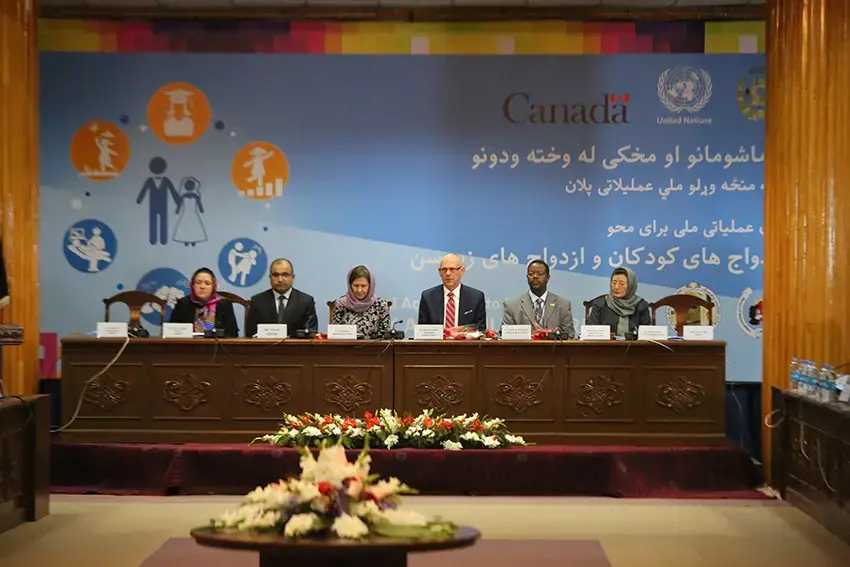"I realized that there are strong women out there to support us, when we have problems we have to raise our voices and ask for help. We should not stay silent. We do not have to stay silent anymore, someone will help us. To have learned that there is always someone to help us made me very happy" said Zahra, a university student from Kabul attending a public presentation of the cartoon story ‘Teacher Malalai Adventures: Mina's Early Marriage'.
The cartoon presentation has been organized by UNFPA Implementing Partner - NGO "Humanitarian Assistance for Women and Children of Afghanistan" (HAWCA) - on 8th March as one of those activities supported by UNFPA Afghanistan Country Office to commemorate the International Women Day 2012.
Mina's Early Marriage is the first episode of Teacher Malalai Adventures, a cartoon story produced by UNFPA Afghanistan in partnership with the Ministry of Women Affairs. In the first episode the teacher faces the phenomenon of early marriage in Afghanistan. Her student Mina, a 13 years old girl, is forced to abandon the school because her parents arranged her marriage but Teacher Malalai is determined to find a solution to support Mina's dream to become a doctor.
Almost two hundreds women of different age group and a small number of men attended the event which was a unique opportunity to share their experiences and personal stories related to early marriage consequences and successful strategies to overcome them.
"I was shocked by one of the participant's experience. A young women shared with us the feeling of despair she experienced during a wedding ceremony that she had to attend and in which the mullah married his seven year old daughter to a very old man" said Wahida Niyaz, head of HAWCA's Education unit and facilitator of the early marriage campaign.
Ms. Wahida Niyaz observed great change of opinions and views as a result of the discussions that happened during the presentation. The participants were very interested to discover the health and educational consequences of early marriage on girls which are often disregarded in the Afghan society where about 57 percent of marriages involve young women under 16 (Afghanistan Independent Human Right Commission, 2007).
Muzhda, 16 years old in 11 grade of high school, was one of the participants. "I felt responsible to share this information to others. The first person I talked to about the early marriage after the presentation was my classmate in school who sits next to me. It is very important to learn about these issues and to pass information further to others because knowing the negative impact of early marriage can save lives" she said.
In partnership with civil society UNFPA Afghanistan supported number of public events in Kabul, Jalalabad and Herat using the opportunity to celebrate the International Women Day for dissemination of messages to combat all forms of violence Against Women and targeted for attitudinal change on grass root level.




